| WELCOME to our third quarterly newsletter, rounding up the latest news and events from our twin institutes in Maastricht. We explore the push and pull of international development: innovation through science and entrepreneurship, and governance through public policy analysis. | ||
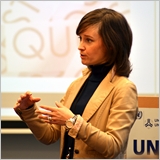 |
Latest News: Research Rankings According to the RePEc rankings for August 2012, UNU-MERIT stood above Oxford, Harvard and Stanford Universities in a number of research areas. We placed in the Top 3 worldwide in the field of Innovation and in the Top 10 per cent in 20 other fields including Technology & Industrial Dynamics, Entrepreneurship, and Intellectual Property Rights. The rankings are based on author affiliations, bibliographic data and citation analysis. For more details see the list compiled by PhD fellow Michael Verba. |
|
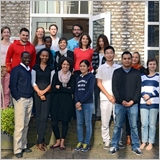 |
First Contact, First Impressions: New PhD Group In late August, we welcomed 18 new fellows on to our Joint PhD Programme in Economics and Governance, with half following the economics track and the other half the public policy track. We spoke on camera with the directors and two fellows from UNU-MERIT and the School of Governance, as well as our 'troubleshooting' secretary who serves both sides. We also interviewed the director and coordinator of our GPAC² part-time PhD course. The next application deadline for our GPAC² course is 15 October, so APPLY NOW. |
|
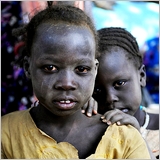 |
Online Migration Course: Best of Both Worlds This course is designed for people who want to boost their knowledge of migration without following a full-time programme. Topics include the causes and impacts of migration, and how and why it has become an intrinsic part of development. The course ends with country case studies from both migrant sending and receiving countries. The next round is set for 7 January-1 March 2013, so REGISTER NOW. |
|
 |
MEIDE Meeting: Homegrown Innovation In Cape Town, from 21-23 November, we're co-organizing the 6th Conference on 'Micro Evidence on Innovation in Developing Economies' (MEIDE), which this year focuses on inclusive, indigenous and user innovation. Highlights include new empirical studies on developing countries based on micro data such as company and R&D surveys, as well as patents, publications and research grants. Follow the link above to see all the topics covered and who sits on the scientific committee. |
|
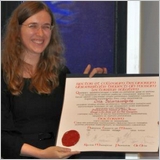 |
PhD Defence: The Final Reckoning We have two PhD defences set for this October. First, on 5 October, Lina Salanauskaite defended her thesis entitled ‘Essays on the Distributional Impact of Public Policies, Ex-Ante and Ex-Post Evaluation’. Then, on 19 October, Dorcas Mbuvi defends her thesis tagged ‘Utility reforms and performance of the Urban Water Sector in Africa’. Check our Facebook page and group for pictures from both events. |
|
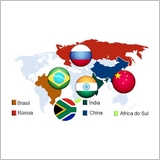 |
UN Workshop: Learning from the BRICS To drive growth and shape policy, developing countries need to study the industrialization processes of Brazil, Russia, India, China and South Africa (BRICS). This was among the findings of a workshop co-organized by UNU-MERIT and the United Nations Industrial Development Organization (UNIDO). The event gathered 50 academics, diplomats and experts from among others the World Bank, the Economic and Social Commission for Asia and the Pacific (ESCAP), and universities in Brazil, Russia and South Africa. A follow-up report is set for release in November 2012. |
|
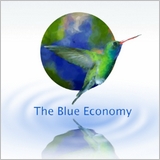 |
MAA Blog: Insights and Ideas Over the last few weeks our bloggers have delved into the Blue Economy, weighed up how to keep a city green, and looked at what happened to Buenos Aires during a recent subway strike. In a word: gridlock! They also redefined value and productivity for researchers, and looked into the past, present and future of research citations, asking how to reconcile old and new forms of authority. If you're affiliated to us and have a great idea for a blog post, please pitch it straight to our editor Howard Hudson. |
|
 |
Kyrgyzstan: Energy Tariffs and Poor Households A new paper, presented by Dr. Franziska Gassmann, analyses the impact of higher energy tariffs on households in the Kyrgyz Republic using micro-data from the Kyrgyz Integrated Household Survey 2009. It aims to answer the question which households will be most affected by higher energy tariffs and to what extent mitigation measures, such as lifeline tariffs or direct cash transfers could soften the impact on poor and vulnerable households. Join us for the seminar at 12.30 on 11 October. |
|
 |
DEIP: Taking Training to Developing Countries Since 2004 we've held 23 courses on the Design and Evaluation of Innovation Policies in developing countries (DEIP), including 14 in Africa, Asia and Latin America. The course shows how technology can foster growth and development, while presenting the latest tools in policymaking and evaluation. Our workshops are tailored to each developing country, targeting senior and middle managers from the public and private sectors. We now have more than 800 alumni and in a recent survey 83 per cent recommended the course. See the full evaluation report and testimonials here. |
|
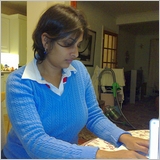 |
Refining Research Skills: Taking Stock In mid-September, 33 participants joined our research skills and methods course, offered jointly by the Maastricht Schools of Management and Governance. Lasting 12 weeks, the course prepares students to launch, implement and write up research, whether for a thesis, a journal or competitive intelligence purposes. It's particularly useful for junior researchers and decision-makers in developing countries. For more details and how to apply for the next round, check out our short courses page. |
|
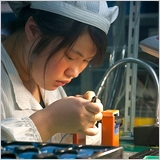 |
Servitization, IT-ization and Innovation Models A new book co-edited by Dr. Kaushalesh Lal, set for release by Routledge, looks at new product innovation models and the formation of two-stage industrial clusters. Using empirical evidence from automobile and electronics companies in Bangladesh, China, India and Taiwan, the book argues that firms should better integrate manufacturing and services. The study also finds evidence, perhaps for the first time, that innovation and knowledge acquisition strategies are influenced not only by the size of firms but also vary with market preferences. |
|
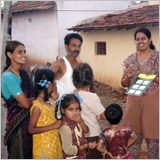 |
Innovation for Sanitation in India: Changing Lives During the last three years our FINISH project has built over 100,000 household toilets in India, changing the lives of half a million people in the country. Short for 'Financial Inclusion Improves Sanitation and Health', FINISH held its latest project meeting in Maastricht in August 2012. In a series of video interviews with Dutch and Indian partners, we heard how FINISH has improved health, dignity and productivity in several regions across India, from cities in the south to mountains in the north. The ultimate goal is to build a million modern toilets in the country. |
|
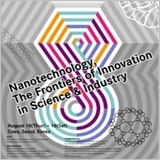 |
Nano Impact: Public Sector Patents in China Senior Researcher Can Huang was invited to present a paper on nanotech patents at a conference in Seoul in August 2012. In a session focusing on ‘Nanotechnology and Social Impact’, Huang said that patent applications in China from 1998-2008 were promoted mainly by the public sector rather than by industry or market forces. This could be instructive for other developing countries in terms of pushing both emerging technologies and indigenous innovation. |
|
 |
Migration, Money and Development: Two New Angles In mid-September, two fellows tackled a major question in the development debate. In an article for UNU HQ Professor Wim Naudé weighed up ‘Migration, Remittances and Resilience in Africa’, finding that the money sent home by migrants is more “stable than other financial flows, including aid”, thus providing “resilience on a continent that has been disaster- and conflict-prone”. Meanwhile Dr. Thomas Ziesemer gave a lecture on ‘Worker Remittances, Migration, Accumulation, and Growth in Poor Developing Countries’. His conclusion: remittances have a positive effect on GDP per capita, investment and literacy. |
|
 |
Meantime Media... Until next time, in early January, please keep an eye on our media channels listed below. We feature interviews and multimedia on a range of issues linked to the push and pull of international development. Highlights include new PhD fellows Stefania Innocenti and Ayo Adedokun giving their first -- mainly positive -- impressions of the course and institute.
FLICKR photo channel |
|
- ABOUT US
- RESEARCH
- EDUCATION
- The Graduate School
- PhD Programme
- MSc Programmes
- Capacity Development
- News
- Design and Evaluation of Public Policies (DEPP)
- Design and Evaluation of Innovation Policies (DEIP)
- Evidence-Based Policy Research Methods (EPRM)
- Migration Management Diploma Programme (MMDP)
- Moving the Migration Policy Agenda Forward (MMPAF)
- Online Courses
- Short Courses (Masters)
- Tailor-made programmes
- UNU-MERIT, ITU Academy Training Centre
- Alumni
- Academic Funding
- NEWS
- EVENTS
- PUBLICATIONS
- LIBRARY





